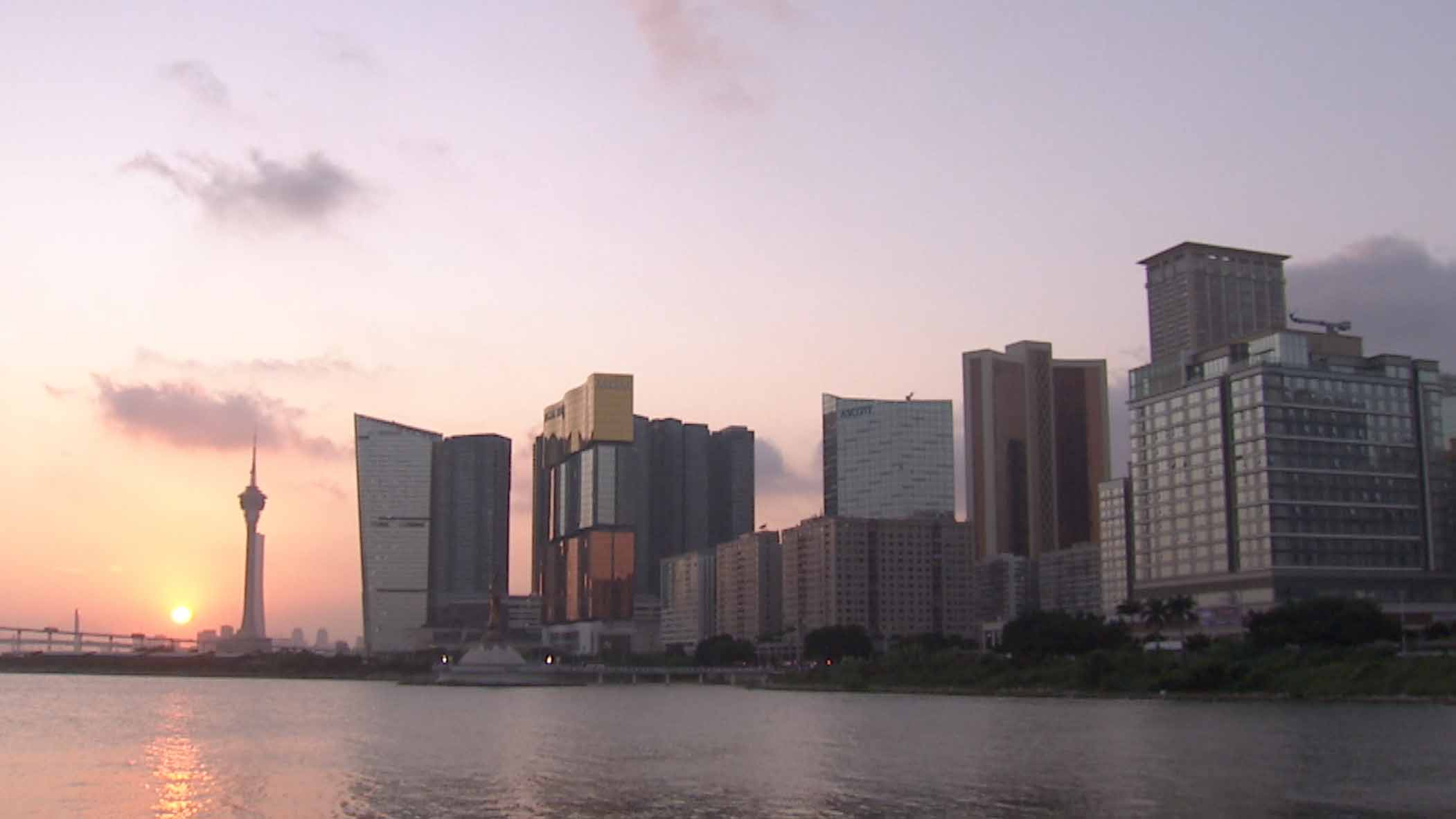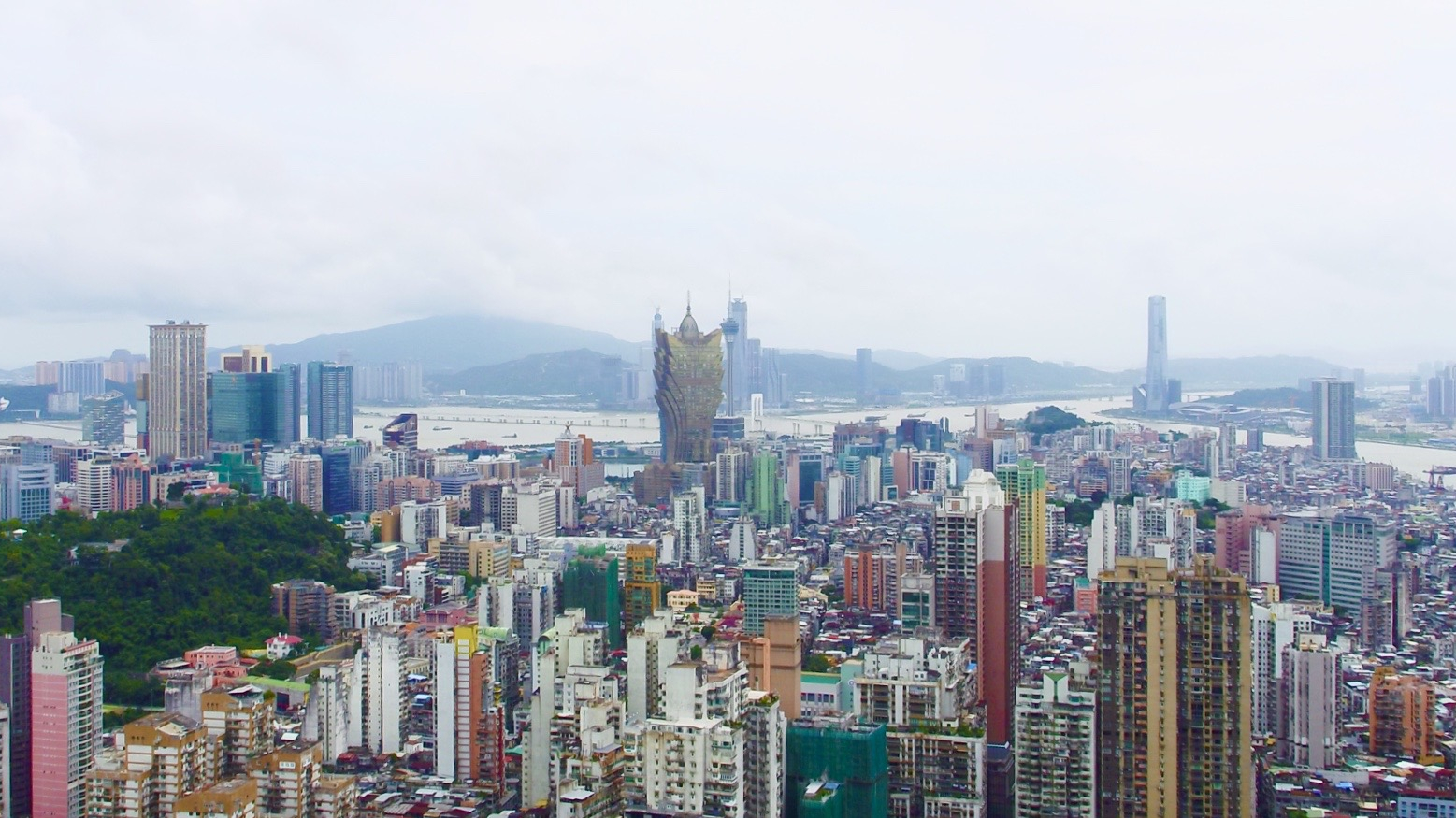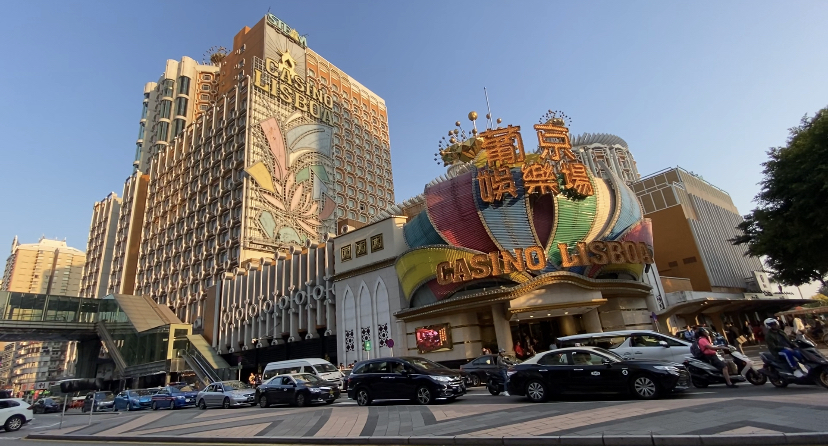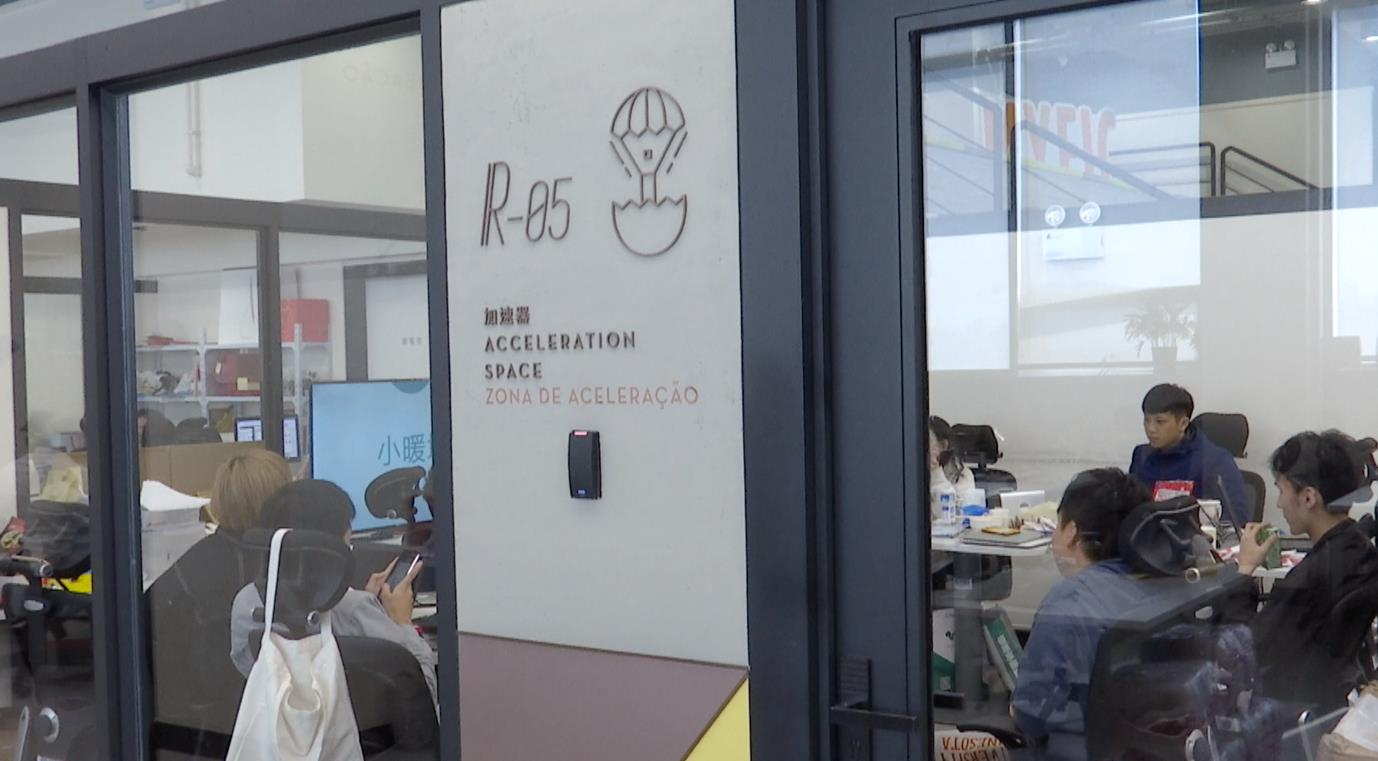04:26

Macao, nicknamed the "Monte Carlo of the East," is known as Asia's gaming capital. Being around 30 square kilometers in area and situated in southern China, Macao is ranked as the world's third richest city based on gross domestic product (GDP) per capita, according to the World Bank. The gaming industry contributes over half of the city's annual revenue, and visitors are made up largely of Chinese nationals from the Chinese mainland and Hong Kong.

An aerial view of Macao. /CGTN Photo
An aerial view of Macao. /CGTN Photo
Gambling in Macao mainly includes casino games, sports betting and lotteries. Until Western-style casino games were introduced to the city in the 20th century, only Chinese games were played, the most popular being "Fantan," which is similar to roulette.
Only when the Chinese mainland's economy is good, can Macao's gaming industry prosper, said professor Wang Changbin with Macao Polytechnic University. "When it was first returned to the motherland, Macao was nothing on the international arena. But in 2006, the revenue of Macao's gaming industry surpassed that of Las Vegas, and in 2008 it went beyond that of the entire state of Nevada."
Macao demonstrates the success of 'One Country, Two Systems'
Macao is one of the two special administrative regions in China – the other being Hong Kong - under the unique policy of "One Country, Two Systems." This means that both cities can maintain their capitalist economies while the Chinese mainland upholds its socialist mode of development. After Macao's return to the motherland in 1999, the gaming policy in the city remained unchanged.
Owing to its unique history, Macao is the only place in China where casinos are legal. The gaming business has grown in leaps and bounds since 1962 when the Tourism and Entertainment Company of Macao (Sociedade de Turismo e Diversoes de Macao) was granted monopoly rights to all forms of gaming. The company was owned by Hong Kong businessman Stanley Ho and his family. Starting 2002, the Macao SAR government began to issue more licenses and the oligarchy was broken.
Pansy Ho, Stanley Ho's daughter, has been striving to inject new dynamic into Macao's tourism sector in the hope of diversifying the city's economy.
"I think Macao has been a major benefactor on the basis that we have these 20 years to demonstrate the success of 'One Country, Two Systems.' But of course, at the same time, we are biggest beneficiary of this unique opportunity in terms of being able to re-engineer our tourism industry," said Pansy Ho in an exclusive interview with CGTN.
Ho said that all sorts of virtual reality technology will be brought into Macao's hospitality industry. Esports were an "appropriate" area for expansion and could even become a "major component" in the city, while "We've already started to talk about sustainability."
Young workers trapped in Macao's gaming sector
As many as 57,246 full-time employees were working in Macao's gaming sector at the end of 2018, which saw an increase in gaming employment in 2018, according to the city's Statistics and Census Service (SCS). Most numerous among them was the aggregate number of "Heguan", or casino dealers, accounting for nearly half of the total number of gaming employees, and rising by 1.1 percent from its 2017 level.
Since the start of the 2000s, a multitude of young people, mostly high school graduates, swarmed into the city's gaming sectors, the reason being its higher pay.
"Since the liberalization of Macao's gaming industry, many companies have been employing people. My classmates suggested we should give it a go. Clerical work on average paid us around four to five thousand patacas (Macao's currency), but being a dealer, it was around 10 thousand. So I chose to get into the gaming industry," said Lei Ka Pan, pit manager at MGM.

A traditional casino in Macao. /CGTN Photo
A traditional casino in Macao. /CGTN Photo
However, the lucrative job might be losing its luster as many casino dealers meet their career ceilings. When CGTN's crew met Lei, he just finished a class from his part-time program at the Macao Institute for Tourism Studies.
"The gaming industry used to be a young person's dream job. But the sector is more mature now and it doesn't require too many skills. Young people now aim to achieve higher positions, plus the local government has been motivating youth to start their own businesses or work in small and medium enterprises. They are trying other jobs now," said Lei.
It was not until 2005 did the teaching of Macao gaming law start in the University of Macao. The undergraduate program of gaming management was extended to include a master's program of international business law at the university in 2007.
Entrepreneurship a possibility to reduce reliance on gaming
The Macao Young Entrepreneur Incubation Center (MYEIC), the only official platform aiming to aid and support young Macanese entrepreneurs, currently boasts over 100 business starters.
"Macao's unemployment rate is low. People all tend to live at ease, so the spirit of entrepreneurship is not high. Now the atmosphere of entrepreneurship is rising with the help of the local government," said Carlos Lam Ka-vai, CEO of Macao Young Entrepreneur Incubation Center. Beijing "has been providing preferential policies for people from Hong Kong and Macao, especially those from the Greater Bay Area."

Macanese entrepreneurs convene at a meeting at Macao Young Entrepreneur Incubation Center. /CGTN Photo
Macanese entrepreneurs convene at a meeting at Macao Young Entrepreneur Incubation Center. /CGTN Photo
The integration of Guangdong-Hong Kong-Macao Greater Bay Area (GBA), officially kicked off in 2017, is poised to synergize the development of southern China. The GBA encompasses 11 cities including Hong Kong, Macao and Shenzhen, business hubs at the forefront of China's opening-up four decades ago.
Macao's efforts to boost its entrepreneurship is extended to the city's northern neighbor of Zhuhai, which is also part of the GBA scheme.
CGTN visited an entrepreneur Lei Zhen from Macao, who started his business in Zhuhai back in 2014. Lei's endeavor in silver nanowire technology won him a global championship organized by Alibaba last year.
Lei points out that it is high time that Macao should develop its high-tech industry. "Macao boasts very good universities, including the University of Macao and Macao Polytechnic University, and their high-level labs. But the city lacks a technology industry, which results in the loss of talent," said Lei Zhen, CEO of Nanometals Technology.
"Other industries are indeed growing over the past years, but they are overshadowed by Macao's gaming sector," said professor Wang Changbin of Macao Polytechnic University.